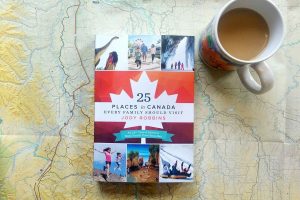How to Ease Out of Summer to Get Ready for School

Nothing is more exciting and terrifying than the lead up to back to school: new classmates, new teacher, new subjects to learn, and for some, even a whole new school. But it can be tough to ease out of summer to get ready for school. One way to help alleviate some of these transitional stresses and ensure kids and teens have more confidence as they pick up their new books, is to keep learning over the summer. After all, it is understandable that some of the skills learned have fallen by the wayside, particularly in reading and writing. Jeanette Podolsky, Director of Speech Therapy Centres has some activity ideas to help you and your kids as they get back into the grind and feel confident heading back to the classroom.
By incorporating activities for listening, language expression, reading and writing into your daily routine, and creating a language-literacy rich environment, you can help ensure smoother transitions at school,’ says Jeanette.
Tips to Get Ready for School by Age:
Preschool Age:
Simon Says: This is a great game to sharpen many of your child’s skills; from listening to improving verbal attention and from following directions to self-regulation. Based on your child’s skill level, you can make the game easy to challenging. Start simple with one task, ‘Simon says clap your hands.’ Then as each level is mastered, add a degree of difficulty, such as multi-step directions, ‘Simon says take your dishes and put them on the counter.’ Or perhaps you can tease them by throwing in some directions that require good listening such as, ‘Simon says don’t clap’ or ‘Simon says tell me a word that rhymes with bat.’ With a little imagination, the possibilities are endless!
Reading together: One of the messages every parent hears from the time their child is an infant is ‘read to your little one.’ As your child grows, so too can reading time. You can work on words, or you can encourage them to use the pictures in the book to help them tell you the story. If you want quiet reading time, ask them to predict what will happen next or when you are done ask them to recall the main ideas, characters and the plot of the story.
Junior School Age:
Name-Place-Animal-Thing: Here’s a fun group word game that stimulates vocabulary and targets literacy skills to get ready for school. Ask one person in the group to call out a letter of the alphabet. Then everyone takes a couple of minutes to write down a ‘name,’ a ‘place, ‘an ‘animal’ and a ‘thing’ that starts with that letter. When all members in the group have finished writing down all four fields, each one calls out their list. There are many ways to build on to this game, from describing how the members of the category are related to including adjectives, verbs, synonyms and antonyms.
Young writers in the making! What did your child do this summer? Something new? Exciting? Or did they simply frolic in the sun and enjoy the laziness of no school. Whether they travelled to a new place, enrolled in a summer camp, or visited some exciting local attractions, ask your child to write about it. Support their writing with a topic and conclusion sentence (e.g., Topic sentence: ‘This summer, I had a lot of fun. ‘Conclusion sentence: ‘I can’t wait for another fun-filled summer next year). Watch them as they write. If you see them struggling with their spelling, encourage them to sound out the words. Once they have finished, have them to check their work for punctuation and proper capitalization.
Middle School Age:
Movie Reviews: Challenge your child to summarize a recent movie they have seen. Not only will this activity target organization of thoughts (beginning, middle, and end), but it will also help with verbal memory, descriptive writing, and presentation skills. Remember, encourage them to provide reasoning for their thoughts and likes or dislikes.
Summer trip comparison: Wonder what your child liked about their summer holiday? Here is your chance to find out. Over dinner or some quiet time, have a discussion with your children where you compare this summer to last. Encourage them to talk about what was liked or not liked and how they can make next summer even more memorable. This activity uses comparison skills, problem-solving and generation of ideas for next summer!
Transitioning from the lazy days of summer to get ready for school can be a challenge for both parents and children. Incorporating some of these activities into your family’s daily routine throughout the end of summer can make for a smoother transition back into school.















